Since meeting Ms. Trang Dung, Mr. Utsumi Shoki had the opportunity to be exposed to Vietnamese cuisine . Realizing that Vietnamese people love to eat vegetables, especially raw vegetables, herbs, etc., he decided to grow and open a shop selling Vietnamese vegetables in Japan.
Mr. Utsumi Shoki (in Osaka, Japan) has a wife, Ms. Nguyen Trang Dung (29 years old, from Nghe An ).
When Dung was an international student, the two met while working at a restaurant. At that time, he was a chef and Dung loved Japanese food. "People often say that the fastest way to a woman's heart is through her stomach, and I think he succeeded in doing so.
From the time I fell in love until I got married, I almost never had to cook. I have always felt lucky and happy because of that," Dung confided.
"I really like eating Vietnamese vegetables"
Mr. Utsumi has a Vietnamese wife.
NVCC
Sharing with Thanh Nien , Mr. Utsumi found it interesting that Vietnamese people love to eat raw vegetables and herbs with main dishes such as roast duck, boiled meat, spring rolls, etc. The Japanese son-in-law said that eating herbs is good for health and adds flavor to the dish. When opening a shop selling Vietnamese spices, he cherished the hope that customers coming to the shop could buy enough ingredients for the dishes.
"People who come to buy shrimp paste to make vermicelli with tofu cannot do without perilla leaves, and cannot cook beef vermicelli without basil, etc. Herbs have become an indispensable part of my shop," he shared.
The man said that foods that seem easy to find anywhere in Vietnam are rare in Japan. Japanese people cannot go pick up eggs from local chickens every morning, eat a balut egg, celebrate New Year's Eve with a duck to ward off bad luck at the end of the year, or eat a young chicken with sweet, tender meat.
He learned and grew Vietnamese vegetables himself.
NVCC
So, he planned to grow vegetables and raise chickens and ducks in Japan. Currently, the vegetable garden covers an area of over 2 hectares, with a pond for raising ducks and a garden for free-range chickens. He raises chickens and ducks in a natural environment for the best meat and eggs. In the vegetable garden, he added a heating system in the winter to grow vegetables such as coriander, basil, etc.
"The first year when I planted coriander, it always bloomed when it was still small, so I didn't get a satisfactory product. For Vietnamese people, growing coriander is not difficult, but for me it was a challenge. Many people think that tropical vegetables can be grown in hot weather, but after careful research, this type of vegetable grows best at temperatures between 15 and 20 degrees Celsius. This is a memorable lesson for me to understand that growing vegetables is not simply sowing seeds, but also depends on many other factors," he said.
They have food stores in Japan.
NVCC
Currently, the vegetable consumption at Mr. Utsumi's shop is 40% Vietnamese and Japanese, 20% foreigners. Every day, he wakes up early in the morning to pick vegetables and transport them by car to the stores during the day.
Mr. Utsumi's vegetable garden in Japan
NVCC
Vietnamese wife companion
"My wife's family has been with me since I didn't know anything about Vietnamese food. I am very grateful to them because without them I wouldn't be as successful as I am today," he shared.
Currently, his shop sells many kinds of Vietnamese vegetables grown by himself.
NVCC
Mr. Utsumi loves to eat bread with coriander, duck eggs with Vietnamese coriander and beef noodles with basil. He said that these herbs were born for those dishes, all of them are in indescribable harmony.
"Maybe because I have received so much support from everyone, I feel very lucky. That is the motivation for me to try harder. Even if I fail, I will try again until I succeed," said the Vietnamese son-in-law.
When he proposed the idea of growing Vietnamese vegetables in Japan, his wife and family did not support him because of the epidemic at that time. Ms. Dung said that there were few foreigners in the area where she lived and that Japanese people were quite unfamiliar with herbs. However, when he was serious about his goal, she had no choice but to support him in pursuing his passion.
Vegetables are carefully packaged
NVCC
"I'm also very happy that you love your homeland and appreciate what belongs to Vietnam," she said.
Although she is Vietnamese, Ms. Dung does not know much about planting and caring. Growing vegetables, hatching eggs, raising ducks, etc. are all learned by him.
"My husband researched and taught me more. I realized that he understood more about Vietnam than I did. I was the one who supported the export, and he was responsible for research and production," the wife confided.
Mr. Utsumi experienced many failures before finding a way to grow vegetables.
NVCC
Ms. Dung shared that he had experienced many failures when growing coriander, did not know how to preserve basil, coriander seeds did not sprout after 6 months of planting,...
At times like that, he learned and challenged himself many more times. It was the perseverance of the Japanese that kept him from giving up and helped him achieve success.
Dung and her husband took a souvenir photo at their family store.
NVCC
In Japan, there are many units that can supply packaged spices and ingredients to meet the needs of Vietnamese people living abroad. However, fresh food, especially vegetables, still has many limitations because it must ensure freshness without affecting the quality of the product. This is also a difficult problem, both an opportunity and a challenge for gardeners like Dung's family. She and her husband always look at customers to try to help people buy vegetables more easily.
"In Japan, selling vegetables is not only selling food but also selling culture. The culture here is culinary culture for customers who do not know about Vietnamese dishes with so many spices and vegetables. This is also what I am proud of about my hometown's cuisine," said Mr. Utsumi's wife.
Thanhnien.vn
source


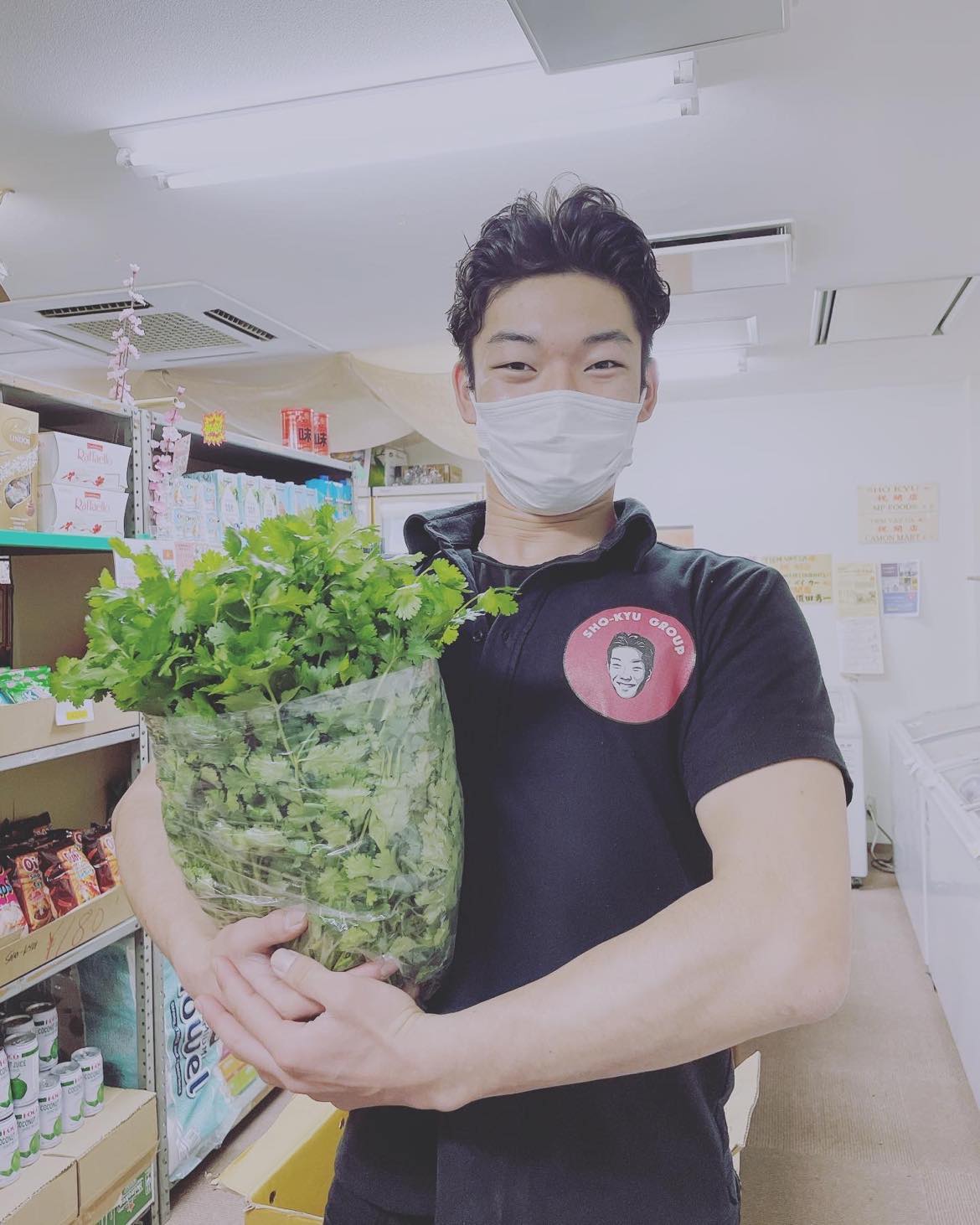
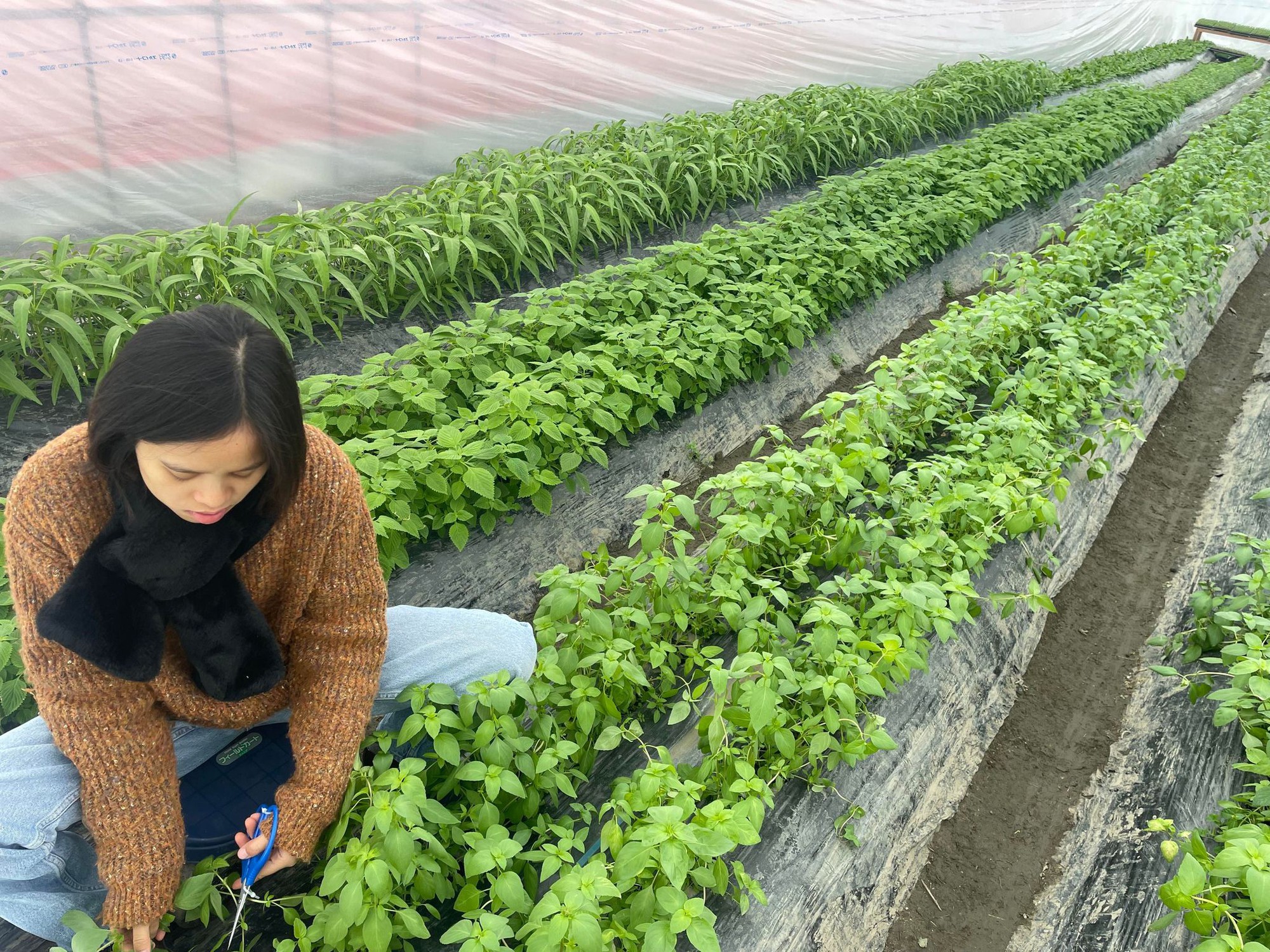
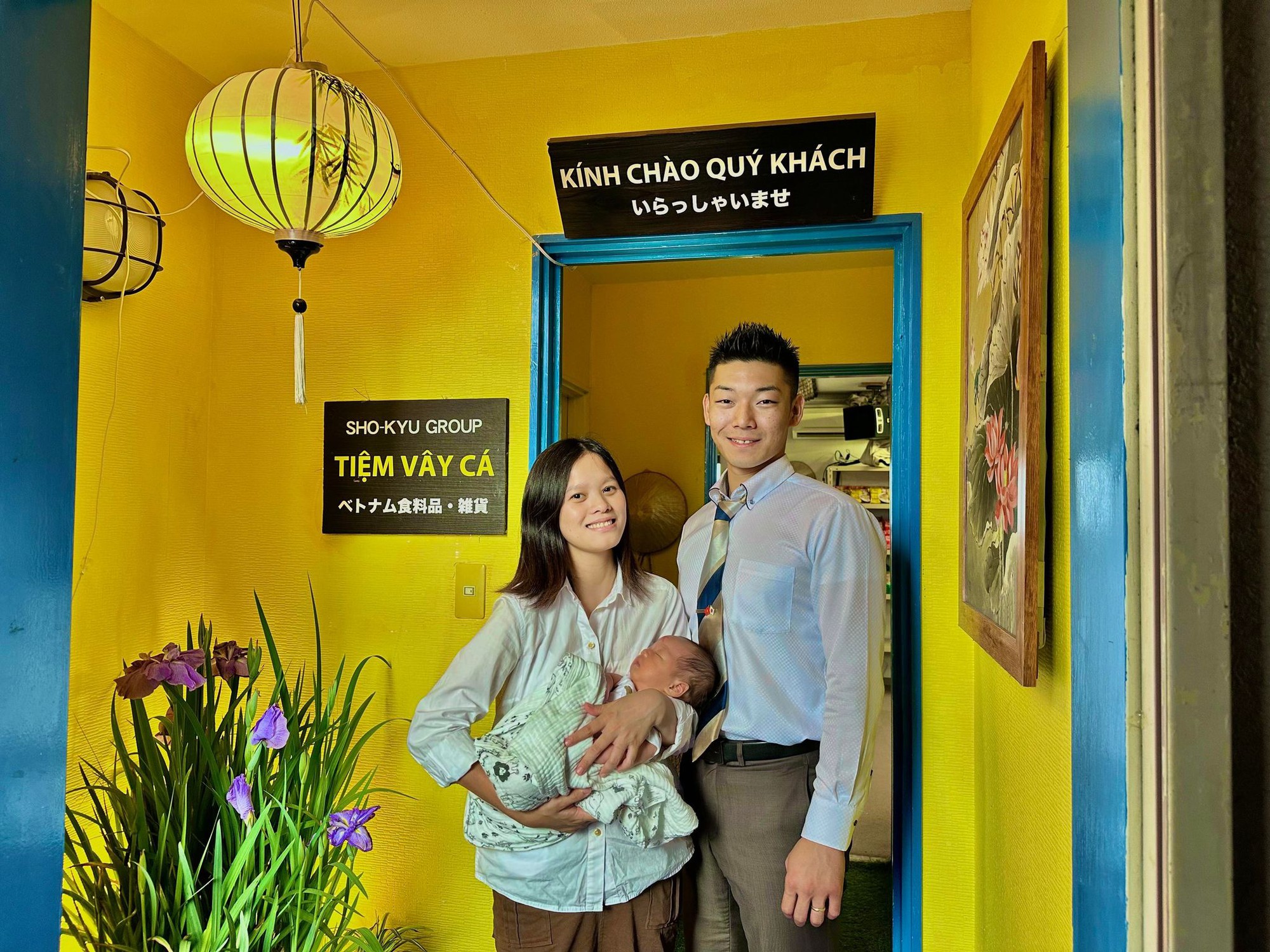
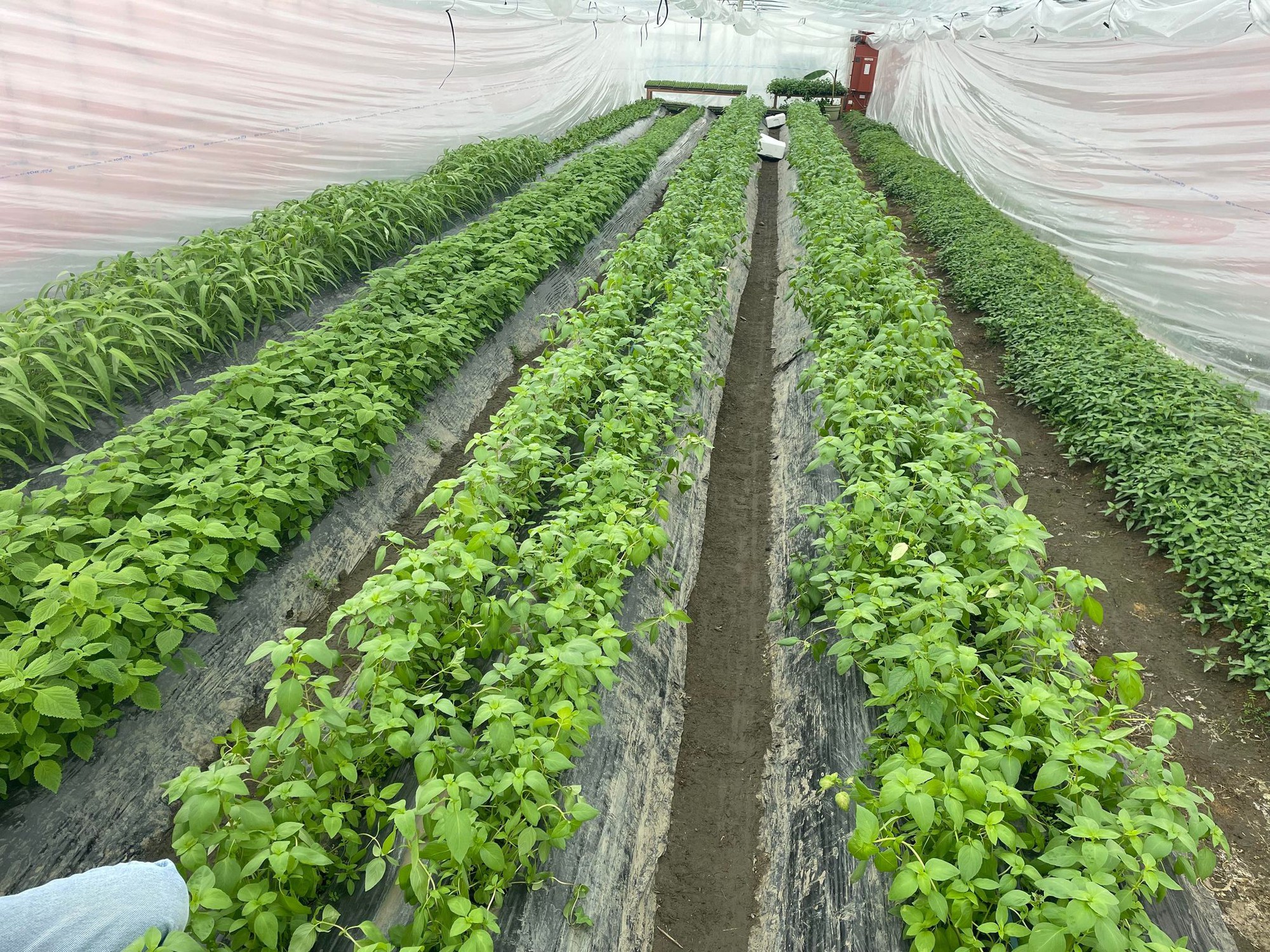
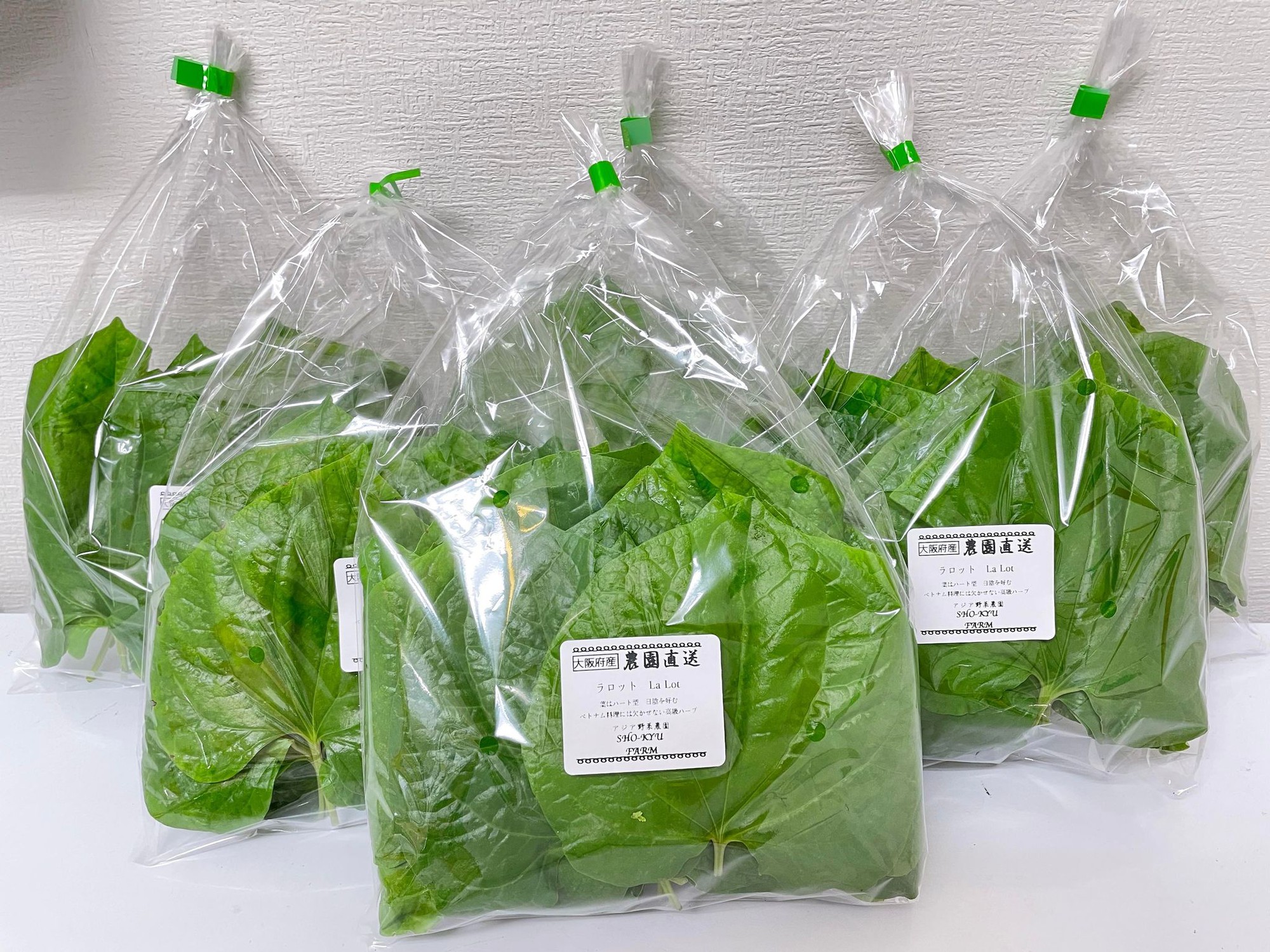
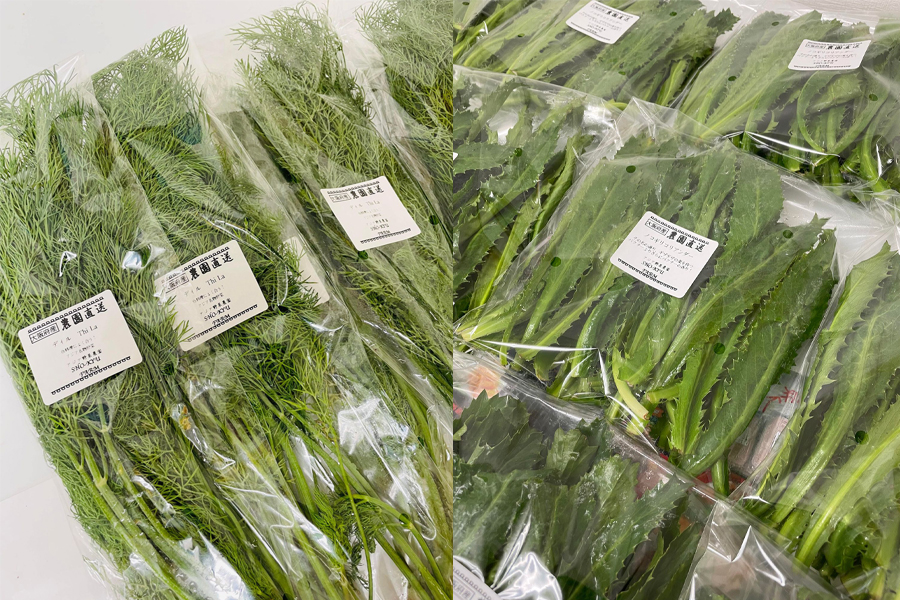
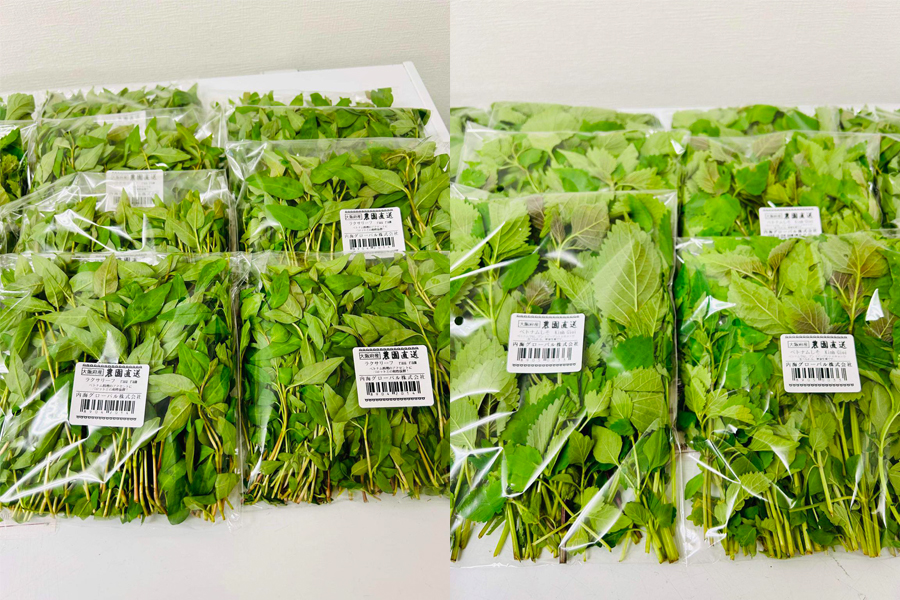
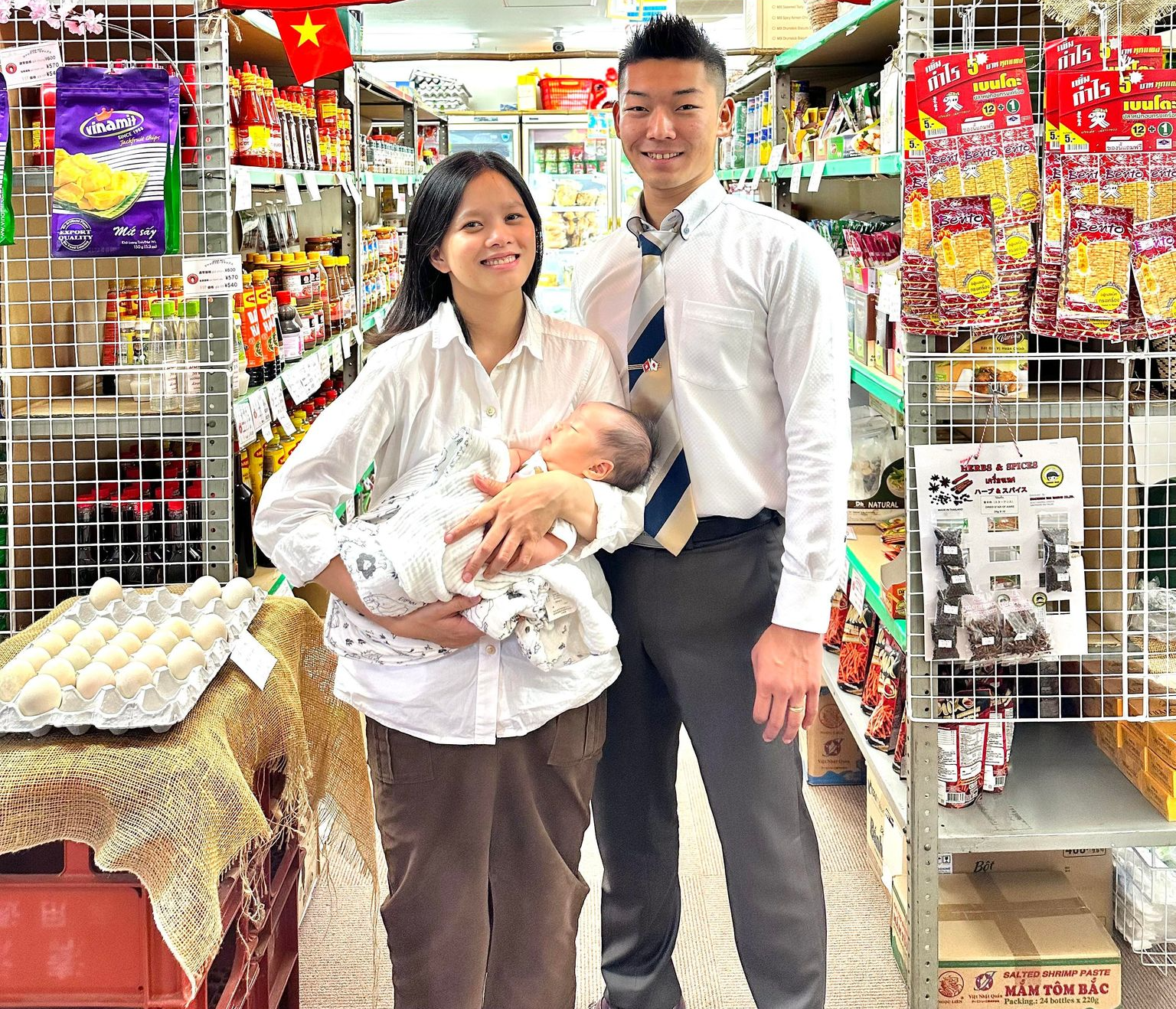



![[Photo] Prime Minister Pham Minh Chinh receives Minister of Foreign Affairs and Cooperation of Timor-Leste](https://vphoto.vietnam.vn/thumb/1200x675/vietnam/resource/IMAGE/2025/9/16/b0e99fd9a05846e4b6948c785d51d51f)

![[Photo] General Secretary To Lam receives Assistant to the President of Russia, Chairman of the Federal Maritime Council of Russia Nicolai Patrushev](https://vphoto.vietnam.vn/thumb/1200x675/vietnam/resource/IMAGE/2025/9/16/813bd944b92d4b14b04b6f9e2ef4109b)



















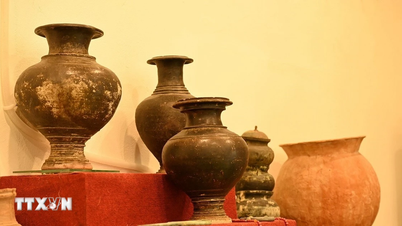

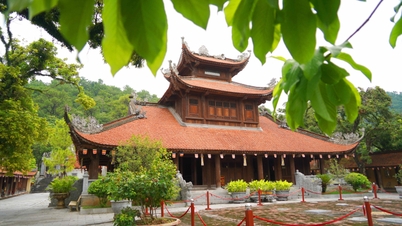

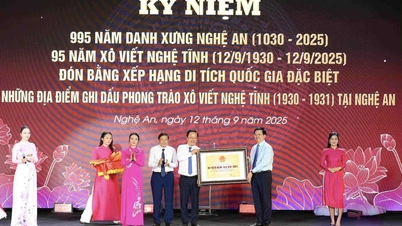
















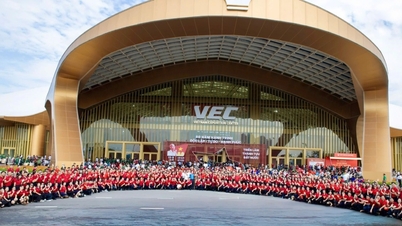





























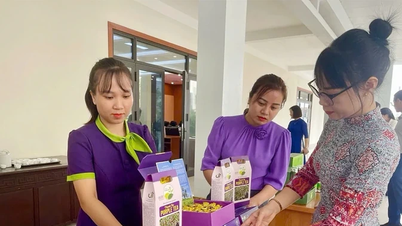











Comment (0)